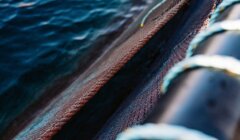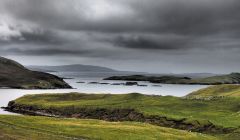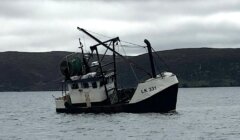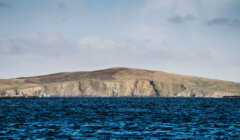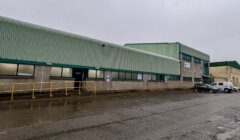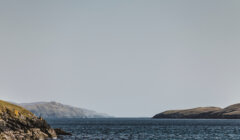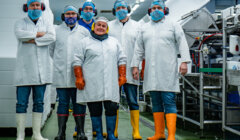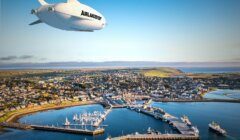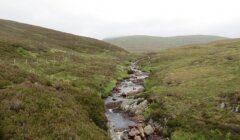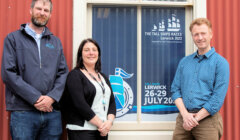Letters / Hopefully not a free for all
I’d commented on 21/11/23 on an earlier 16/11/23 article of Chris Cope concerning fish farms and reminded SN readers then of a recent BBC Countryfile report on the subject, with an also attached somewhat sobering comment by Animal Equality on fish farm conditions and environment degradation.
Chris Cope’s interesting report of 15/2/24 on MSP Ariane Burgess’s response to Scottish Sea Farms’ application for consolidation of some four disparate salmon sea fish farms into one at Fish Holm leaves one with the distinct impression this is being done primarily by the owner for financial economies of scale.
Salmon company criticises MSP’s ‘ill-informed’ views on proposed new Shetland farm
As with oil and gas, overseas owned wind farms on and offshore and foreign owned cruise liners impacting the community, notwithstanding the local employment use for fish production and processing, this is yet another business one might think should primarily be in the hands of locals.
Or at least with SIC holding significant public investment on behalf of the population in public seas.
Ms Burgess’s comment on water quality seems to have considerable validity when one considers, apart from the response of SSF appears dating back to 2018, yet in 2022 alone an expanding mortality rate of some 17 million was recorded above a harvest of 77 million fish.
In addition, 2023 has not been a good year for major producers due to factors at ‘biologically challenged sites’. Hardly sounds like fish welfare or water quality is being improved by producers of this product, though it is comforting to know our ingestion of chemical input related to fish survival is improving.
Or does the future lie in onshore production and processing, thereby supposedly reducing environment impact and fish disease?
On reviewing the Sweden plan for a Eu47 million EIB funded onshore facility projected to produce some 10,000t of salmon annually, one reflects with astonishment, as per the more recent Grimsby farm Animal Equality report below, on the amount of pollutants this facility is likely to produce.
What is stated for the just approved 5,000t Grimsby plant, without even an EIA, (1,000t smaller than what proposed for Shetland) is reportedly going to produce the equivalent waste to a 400,000 human population.
So one can imagine what’s going into Shetland seawater from the applied for larger sea farm! The Swedish facility is proposing to recycle 99 per cent water with waste going to biogas. Presumably if it’s done on land it has to be processed, and therefore an added cost, though owners say mortality and chemicals reduced.
However even onshore production can throw up problems as per Gigante’s reported recent smolt mortality.
Surely for Shetland one of several things the area should be known and respected for, apart from local ownership to retain income locally, is quality of product, priced accordingly. Quality should stand out from what’s mass produced.
So in this this case hopefully it’s not a free for all in Shetland seas, or is anyone with authority for same determining limits to both ownership and scale of otherwise polluting businesses.
Andrew Marshall
East Kilbride











































